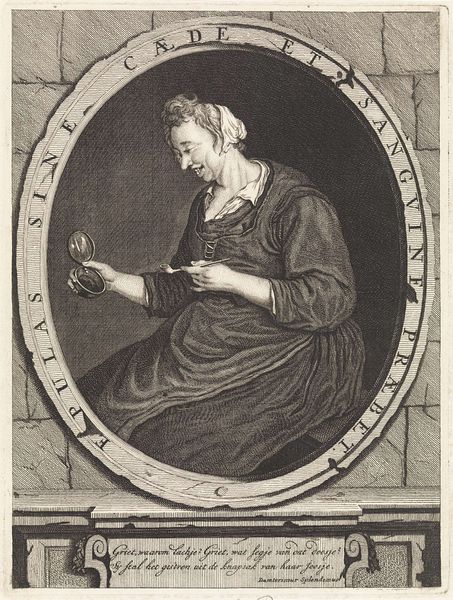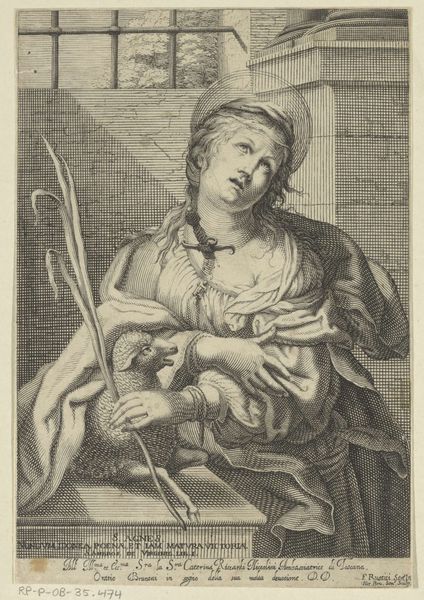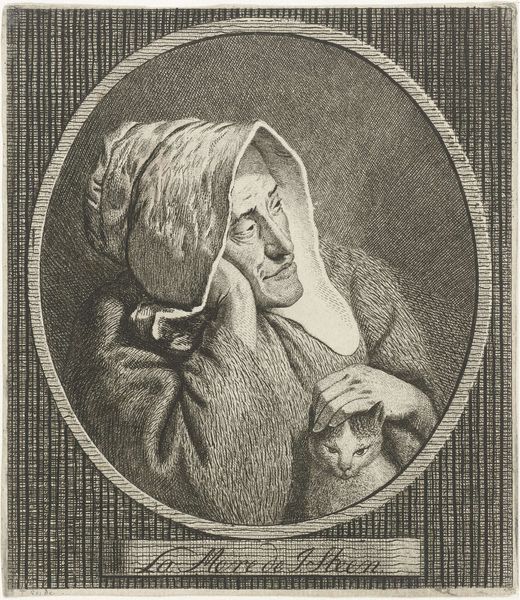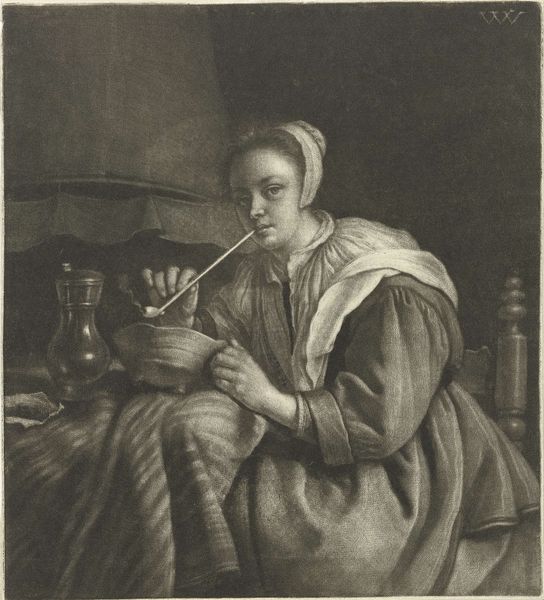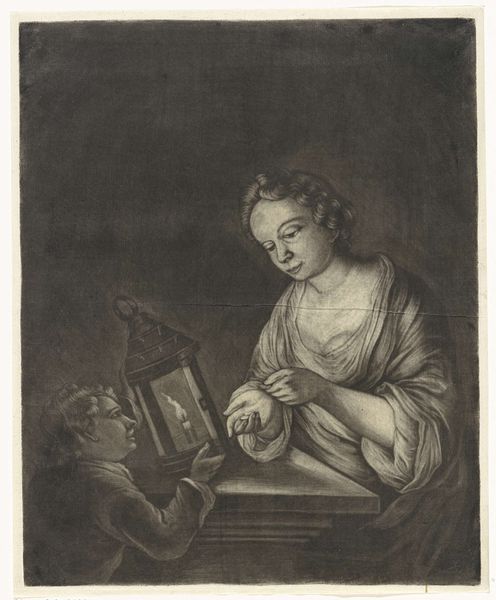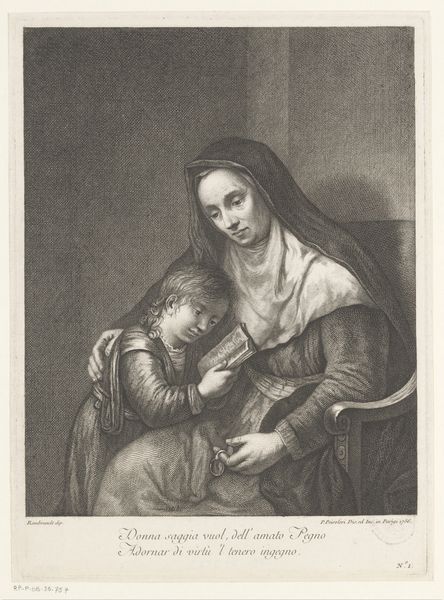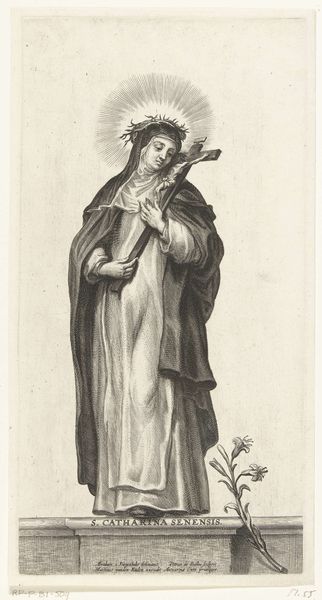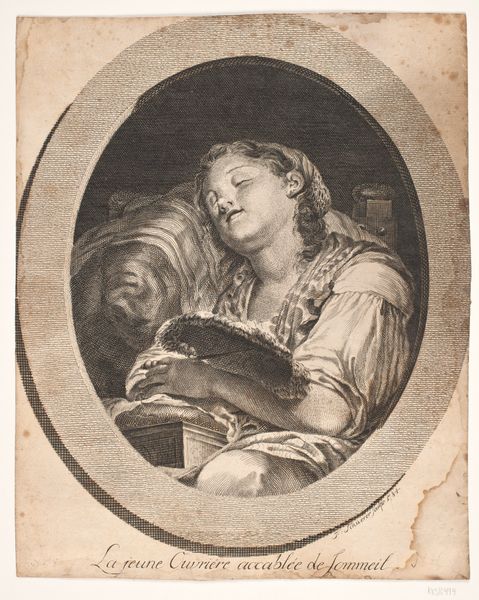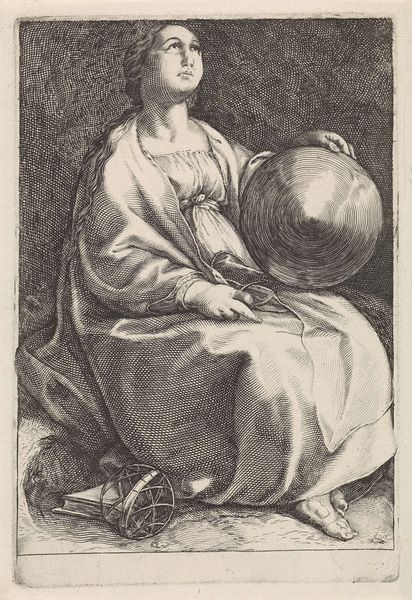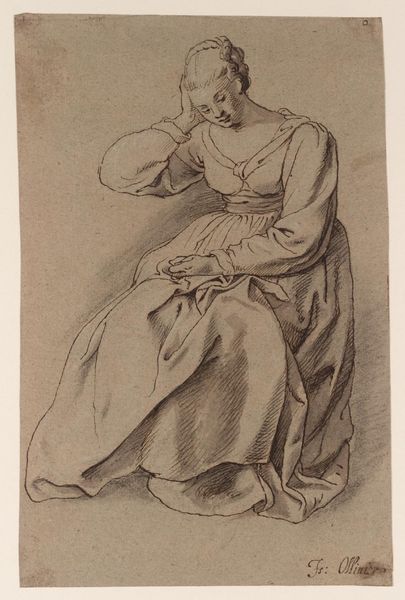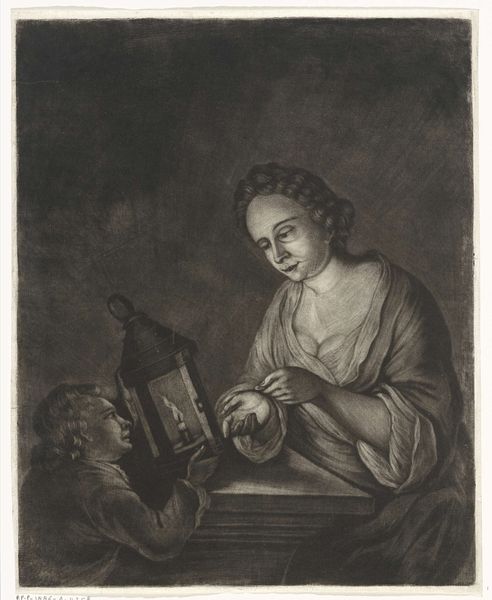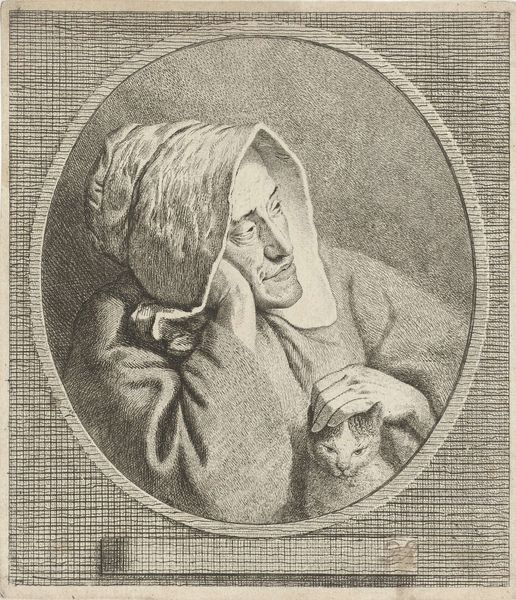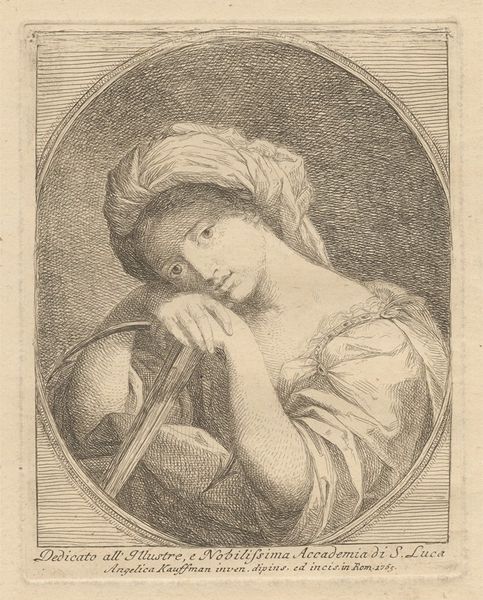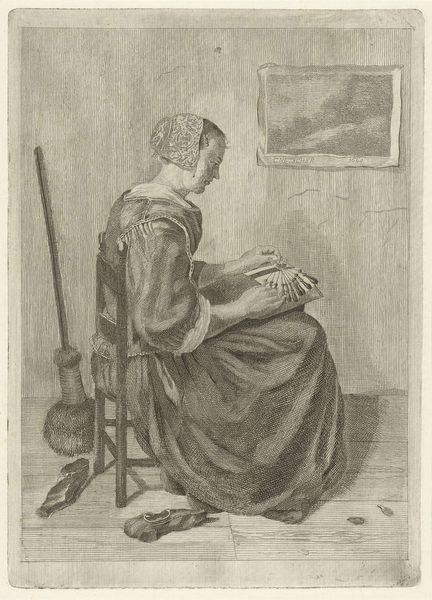
Zittende plattelandsvrouw met een kan en een glas in haar handen 1670 - 1704
0:00
0:00
cornelisdusart
Rijksmuseum
drawing, pen
#
drawing
#
dutch-golden-age
#
charcoal drawing
#
pen
#
genre-painting
Dimensions: height 250 mm, width 178 mm
Copyright: Rijks Museum: Open Domain
Curator: There's a quiet contentment emanating from this drawing. It looks like she's just taken a well-deserved pause. Editor: Indeed. We're looking at a piece called "Seated Peasant Woman Holding a Jug and Glass" by Cornelis Dusart. The work, rendered in pen and charcoal, dates back to sometime between 1670 and 1704. It offers us a glimpse into Dutch Golden Age genre painting. Curator: I like that it's framed inside an oval, almost as if looking through a portal. And the limited tonal range evokes something about the perceived simplicity of the countryside in that era. A counterpoint, maybe, to the hustle of urban centers? Editor: It's tempting to interpret that framing as a kind of idealized gaze, though, we shouldn't forget how such genre paintings often portrayed rural life. Frequently the scenes were meant to moralize or to simply provide entertainment for a burgeoning middle class eager to view other social echelons, without always being truly aware of all their contexts or complexities. Curator: That’s fair. And what does strike me, actually, is her rather ambiguous expression. She looks both tired and like she’s enjoying her beer immensely! What's going through her mind, I wonder? Editor: Exactly! She's pausing and pondering as she fills that glass, maybe savoring a brief escape from the hard realities of her everyday labor. Perhaps her choice offers a lens for discussing alcohol consumption, class, gender, and the daily grind of peasant women in that period. The simple act depicted here invites further investigation beyond the surface. Curator: That it does. Each observation helps to see that there's often far more beneath the surface of such images. Editor: Ultimately, Dusart's work allows us to consider the multifaceted nature of labor and leisure, then and now. What does it really mean to stop, rest, and just drink beer?
Comments
No comments
Be the first to comment and join the conversation on the ultimate creative platform.
